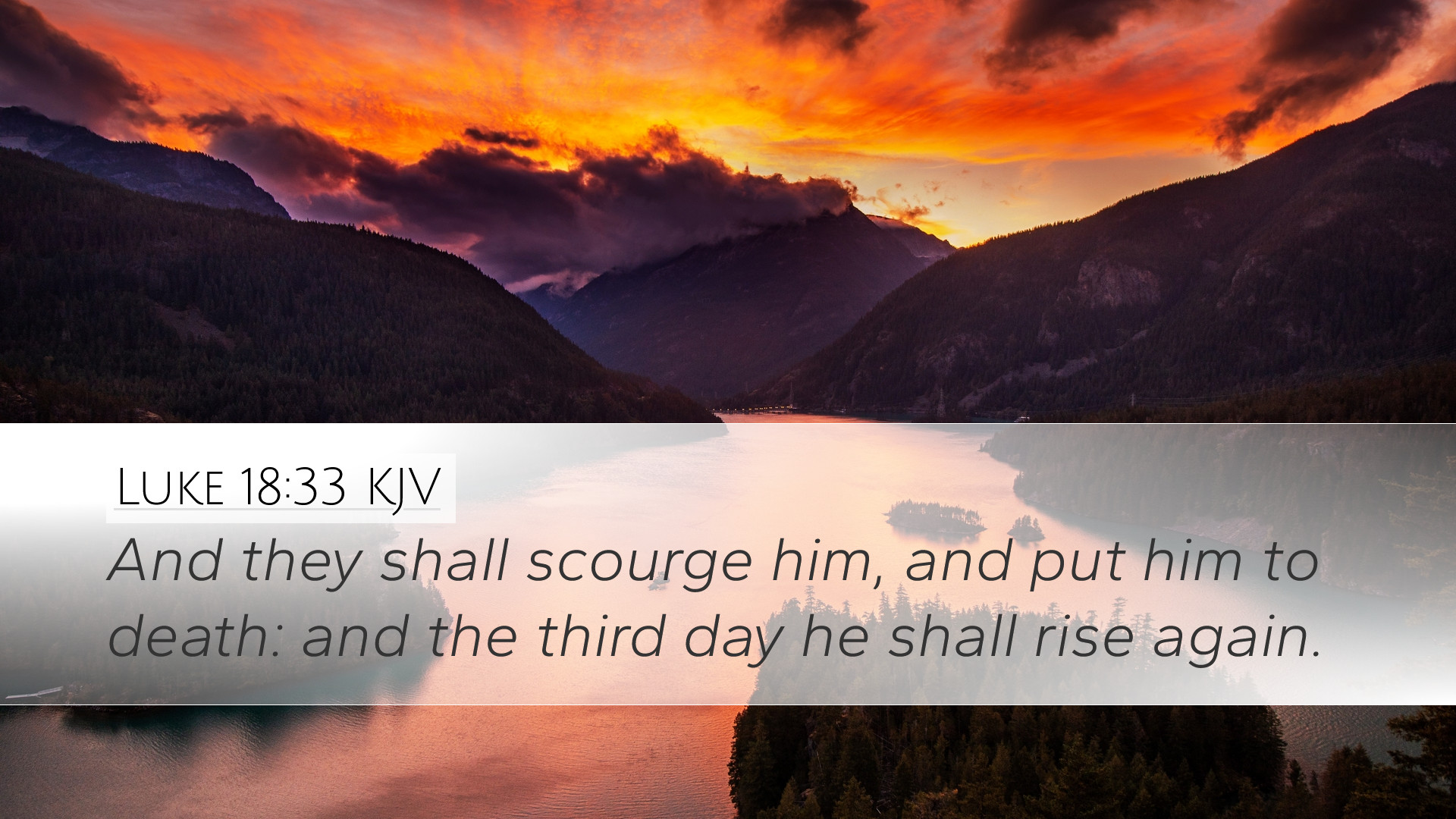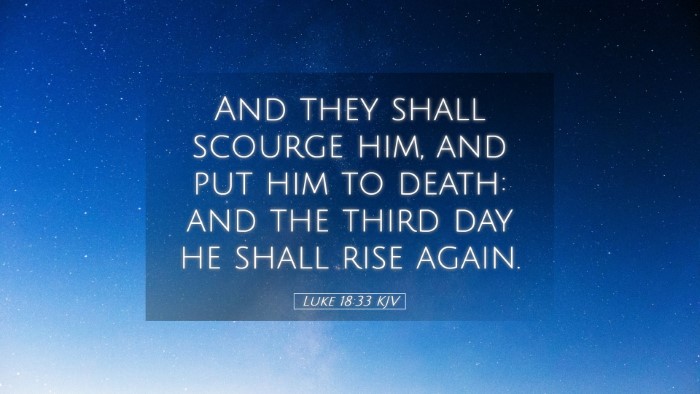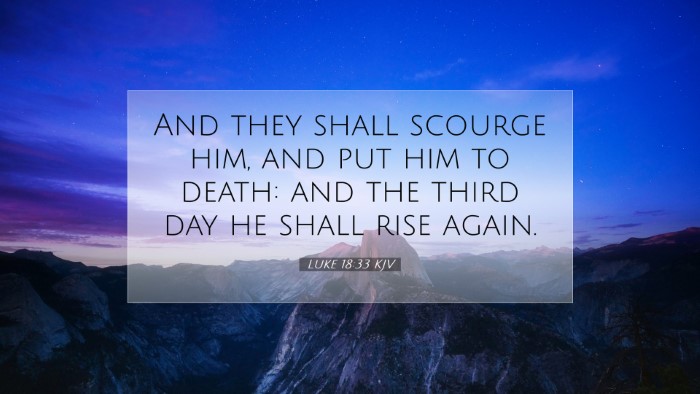Commentary on Luke 18:33
Verse: "And they shall scourge him, and put him to death: and the third day he shall rise again."
Contextual Overview
In this passage, Jesus speaks directly to His disciples about the forthcoming events surrounding His passion. This narrative is critical for understanding the nature of Christ’s mission and the depth of His suffering. It forms part of a larger context where Jesus is traveling to Jerusalem, aware of what awaits Him.
Insights from Public Domain Commentaries
Matthew Henry's Commentary
Matthew Henry emphasizes the prophetic nature of Christ's words. He notes that the predictions of His sufferings are both explicit and significant, showcasing Jesus' foreknowledge of His fate. Key points highlighted are:
- The inevitability of suffering: Henry explains that Jesus’ suffering is not accidental; it was foretold in the Scriptures. This aligns with the prophetic writings of the Old Testament, confirming that Jesus is the Messiah.
- The specifics of the suffering: The verse details the agony He will endure, including scourging and ultimately death. Henry points out that this serves to prepare the disciples for the traumatic events to come, helping them to understand the price of redemption.
- The hope of resurrection: After highlighting His suffering, Jesus promises resurrection on the third day, which Henry notes brings a significant element of hope, assuring the disciples that there is purpose and victory even in suffering.
Albert Barnes' Notes
Albert Barnes offers a more detailed analysis of the implications of the prophecy. Some of his observations are:
- The cruelty of the scourging: Barnes elaborates that scourging was a brutal form of punishment, underscoring the heinous nature of human sin and the length Christ went to for humanity's sake.
- The importance of the third day: Barnes argues that the specificity of "the third day" has significance in both Jewish tradition and the overall narrative of the New Testament. It emphasizes a fulfillment of prophecy and the decisive defeat over death.
- Encouragement for believers: Barnes sees this passage as a reminder for believers that suffering does not have the final word, inviting Christians to hold onto hope amidst trials, paralleling their own sufferings with that of Christ.
Adam Clarke's Commentary
Adam Clarke provides a deep theological exposition, focusing on the inner implications of Jesus' message. Key insights include:
- The divine plan: Clarke reflects on how Jesus’ death was not merely an unfortunate event but a part of divine providence. It reinforces the idea that God was orchestrating salvation history through Christ’s sacrifices.
- Analogy of suffering and glory: He discusses the relationship between suffering and resurrection glory. Clarke highlights that every believer can draw parallels from Jesus’ path, wherein suffering leads to community and personal glory.
- Call to discipleship: Clarke emphasizes that this revelation is foundational for understanding the cost of following Jesus. It calls for a deep commitment and understanding that following Christ may lead through suffering, but also promises ultimate victory.
Theological Implications
This verse acts as a theological cornerstone for the understanding of Christ’s atonement. Each commentary presents a multifaceted reflection on how Jesus openly forecasts His suffering, encompassing themes of prophecy, hope, and the nature of redemption.
Reflection on Suffering and Resurrection
The key takeaway from Luke 18:33 is the paradox of the Christian faith: suffering precedes glory. The beauty of the resurrection story lies in the assurance that through Christ's humiliation, believers are also granted eternal life. The call to take up one's cross (Luke 9:23) resonates here as Christians are invited to share in the sufferings of Christ, with the promise of future hope.
Application for Today’s Believers
For pastors, students, theologians, and scholars, Luke 18:33 communicates profound truths that are applicable in contemporary contexts. Key applications include:
- Understanding God’s Plan: Recognizing that God works through suffering can provide comfort and perspective in difficult circumstances.
- Encouragement to Lead: Leaders in faith communities can draw from this prophetic message to guide others in understanding the complete picture of the Christian faith—embracing both suffering and hope.
- Proclaiming the Gospel of Hope: The promise of resurrection is a vital aspect of Christian teaching, encouraging believers to share the message of hope and redemption with a world in need.
Conclusion
Luke 18:33 serves as a profound reminder of the core beliefs that frame Christian doctrine. Through the insights of Matthew Henry, Albert Barnes, and Adam Clarke, readers are offered multiple lenses to reflect on the interplay of suffering and resurrection. This verse not only foreshadows the lonely path Jesus would tread but also shines a light on the hope that lies beyond—encouraging believers to find strength in their own tribulations as they follow Christ.


